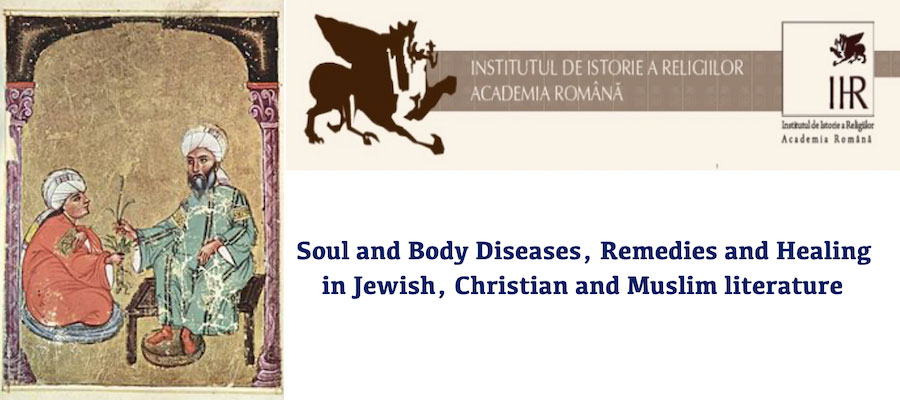In the context of a global pandemic, this edited volume of essays seeks to reevaluate Jewish, Christian, and Muslim historical literature with a focus on questions related to diseases of the soul and the body, their psychological or social effects, and remedies.
The volume, entitled "Soul and Body Diseases, Remedies, and Healing in Jewish, Christian, and Muslim Literature" will be edited by Catalin-Stefan Popa of the Institute for the History of Religions, Romanian Academy.
Topics devoted to historical science must, without a doubt, always take into account the realities of the present. In this sense, in the context of a global pandemic, a re-evaluation of the sources and a look through the respective lenses of the vast historical literature associated with the world’s three largest monotheistic religions are justified in order to answer the following questions: What did previous generations and individuals learn about illnesses? What did people of different religious or confessional backgrounds believe about diseases of the soul and the body? And what psychological and/or social effects did their convictions have in terms of remedies?
Illness and healing, seen as elements that affect both the soul and the body, have always been present in religious literature. Consequently, the contributions we await will focus on a range of topics from antique, medieval and pre-modern Jewish, Christian (with all its denominational groups: Armenians, Copts, Melchites, Ethiopians, East Syrians, West Syrians) and Muslim literature, and take into account two major social categories: the intellectual world (religious and anthropological treatises) as well as lay literature and popular motifs (reflections, hymns and poems).
Contributions should focus on answering the following questions:
- What was the position of the intellectual centers of Baghdad, Basra, Mecca, Cairo, Alexandria, Damascus, Jerusalem, Beirut, Nicosia, Cilicia, Constantinople, Athens about diseases of their times?
- To what extent can we speak about a genre of apocalyptic literature in these centers on the topic of current diseases in society
- How were these considerations transposed into religious discourse? How were these addressed from multiple angles across schools’ curricula in medical, theological, philosophical or scientific treatises (philosophy, anthropology, ethics, history, geography or mythology)?
- Did the writers regard the diseases as omens of their age? What were their reflections about diseases and healing in terms of religious symbolism?
- On the other hand, we are also interested in popular beliefs about illnesses, and the connection of the body with the soul in overcoming the disease, or the causes of disease, respectively. Contributions focusing on folk remedies and healing rituals, with all their associated mythological and symbolic nuances, are also of interest in order to understand the complexity of the phenomenon.
Titles and abstracts should be submitted by February 1, 2021. Final essays are due by December 31, 2021.
